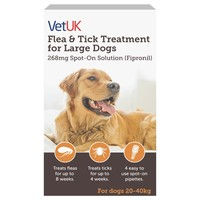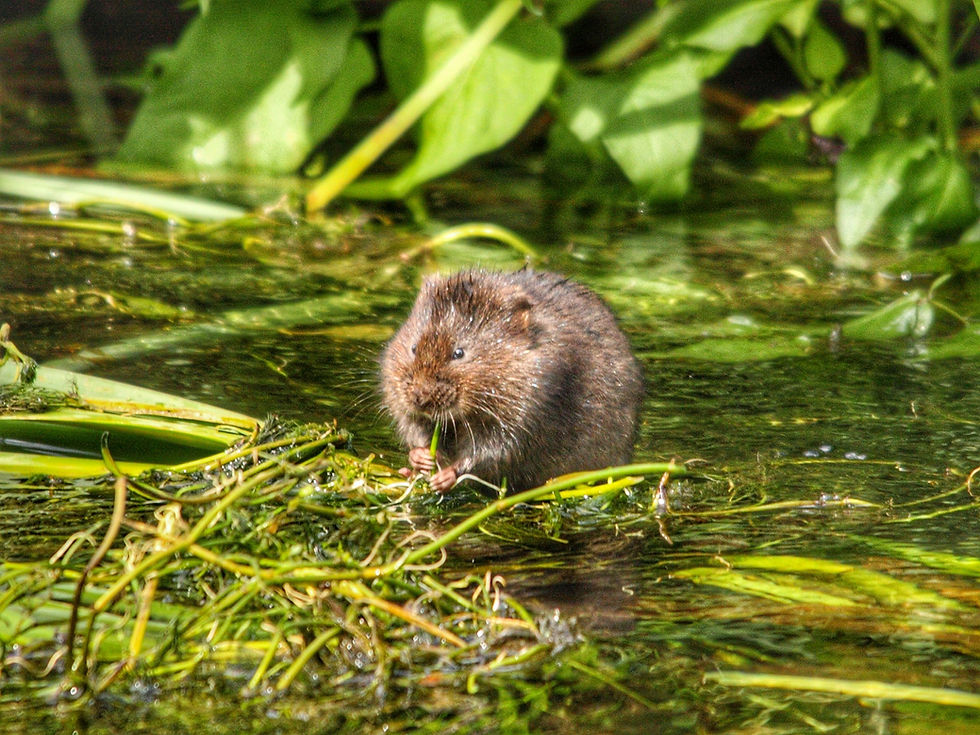SHOULD PET FLEA TREATMENTS BE REGULATED?
- Broads Society

- Jul 21, 2025
- 4 min read
By Mark Collins
Flea and tick treatments for dogs and cats that contain imidacloprid or fipronil are highly
effective but must be used with great care. Just as ‘neonics’ in sugar beet seed dressings
devastated our honeybees and other non-target insects, if these flea treatments enter our
rivers, they can have a devastating effect on freshwater invertebrates and the fish,
mammals, and birds that depend on them for food. Neonics are now tightly regulated but
very similar treatments for pets have slipped through the regulatory net and there is a strong
argument for selling them by prescription only.


Water is the lifeblood of the Broads, and the quality of river water is a matter of great
concern to the Broads Society. Over the past couple of years, many of you will have read our
blogs on this issue, including:
Water Quality and Wetlands: The Role of the Broads (26th January 2024)
Hidden Threats: Pharmaceutical Pollution in the Broads (16th August 2024)
Are our Broadland Waterways Healthy? (24th September 2024)
National Parks Left Exposed: Concerns Mount Over New Water Pollution Legislation
(29th January 2025).
Our quarterly magazine, Harnser, has also addressed the problem, most notably with an in-
depth article in Spring 2025, Poisonous Waters by Matt Shardlow.
Matt examined the rise and fall of neonicotinoid pesticides, commonly called ‘neonics’ - nerve toxins that were developed as agricultural insecticides in the 1990s and early 2000s. These ‘systemic' chemicals, used as sprays and seed dressings, are absorbed by plants and distributed throughout their tissues, including sap, pollen and nectar, making them highly toxic to insects that feed on them. While they offered effective pest control with lower toxicity to mammals compared to older insecticides, neonics had devastating effects on non-target organisms, particularly honeybees and other pollinators, and were banned in Britain and Europe some years ago.
However, a chloronicotinyl neonicotinoid called imidacloprid remains one of the most widely
used insecticides in the world. This is also a systemic chemical and can cause significant
harm if used improperly or without proper caution. Astonishingly, these potent insecticides
are readily available in village stores, supermarkets, and online for use on pets, and they are
unwittingly contaminating our rivers, harming wildlife - and probably us as well. Millions of
doses of pet flea and tick treatments containing imidacloprid are sold without prescription or
regulation each year, and recent reports have found them in many streams and rivers, killing
mayflies, dragonflies, water beetles, and other freshwater invertebrates that wetland birds
and fish depend on. This is a national-scale chemical pollution issue, and it needs to be
addressed quickly.
More than one in three UK households now owns a dog, and the number in the country has
risen to over 13 million, partly because over 3 million households adopted a dog during the
pandemic. Unsurprisingly, blood-sucking dog fleas (Ctenocephalides canis) will take
advantage of the increased numbers, and they need to be controlled, not only
because they are unpleasant but also because they can spread the tapeworm
Dipylidium caninum.

In the Broads, it's common to see dogs enjoying a swim in the river, but what their owners
may not realise is that if they have recently used a flea treatment containing imidacloprid (or
the closely related fipronil), the impact on freshwater invertebrates can be severe, even at
very low levels. Washing dogs at home can also allow imidacloprid to enter the wastewater
system and reach our rivers in this way.
Pet owners need to be careful about what they buy and avoid using chemical flea treatments whenever possible. There are plenty of natural alternatives available. Fleas dislike strong, pungent smells, especially those found in essential oils like cedarwood, eucalyptus, lavender, peppermint, and rosemary, which are all known to repel fleas.
The Broads Society and other NGOs that support national parks are working to raise
awareness of this growing problem and, together with the Campaign for National Parks,
have urged the government to take regulatory action to make them available only on
prescription. Please consider writing to Baroness Hayman, the Under-Secretary of State at
Defra with responsibility for biosecurity and animal welfare, along the following lines:
To: Baroness Hayman, Defra, haymanh@parliament.uk
We need the UK government to end the non-veterinary sale of imidacloprid and fipronil pet
flea and tick treatments because of the harm these chemicals can cause in rivers and lakes,
particularly in the Norfolk Broads, Britain’s most important freshwater wetland, and all other
Protected Landscapes.
We know that imidacloprid and fipronil are deadly to aquatic invertebrates even in minute
quantities, but these pesticides are entering our rivers, lakes and water systems when
treated dogs take a swim, are washed at home, when we wash their bedding or even our
own hands.
One treated dog can contaminate 5 million litres of water above safe levels, but these
treatments are sold without guidance, warning, or oversight.
We urge the UK Government to:
1. Ban sale of imidacloprid and fipronil-based pet treatments except by veterinary
prescription
2. Immediately improve warning labels to highlight the environmental harm of these
products
3. Support research into safer, eco-friendly alternatives for parasite control.
Let’s protect our rivers, wildlife, and national parks!
Mark Collins, Chair, The Broads Society




Comments